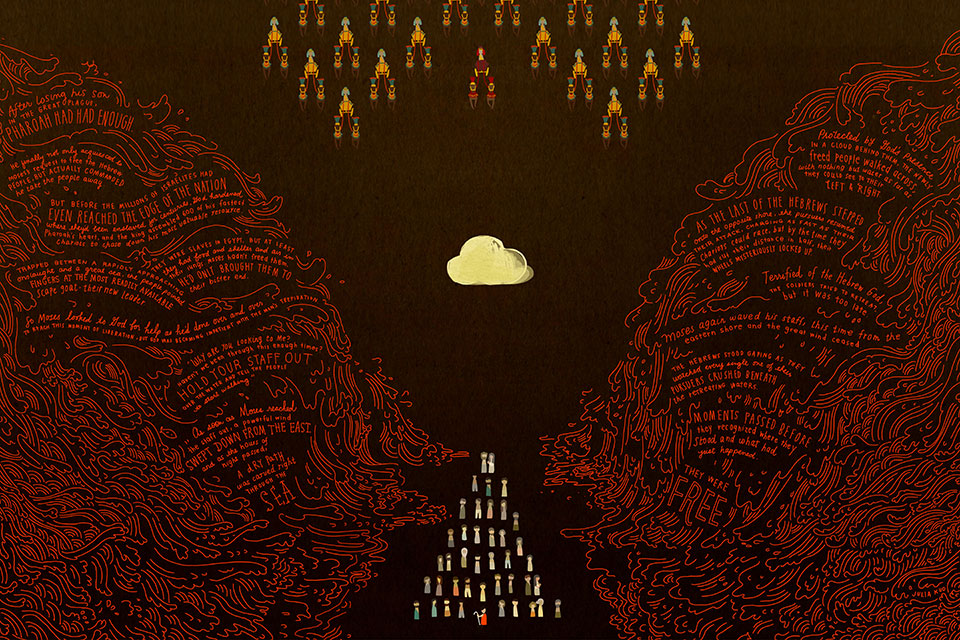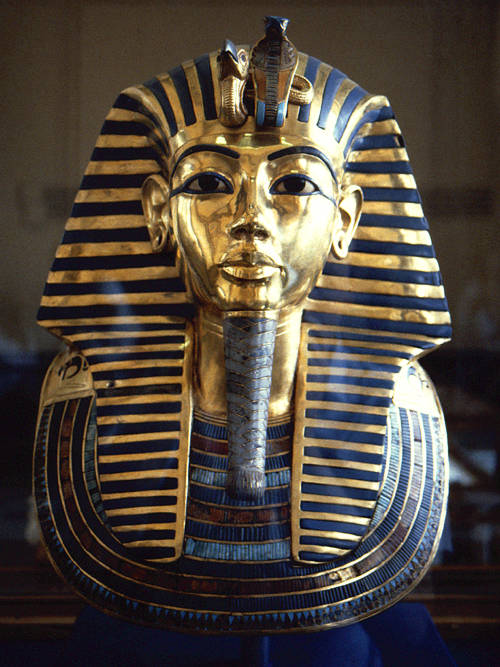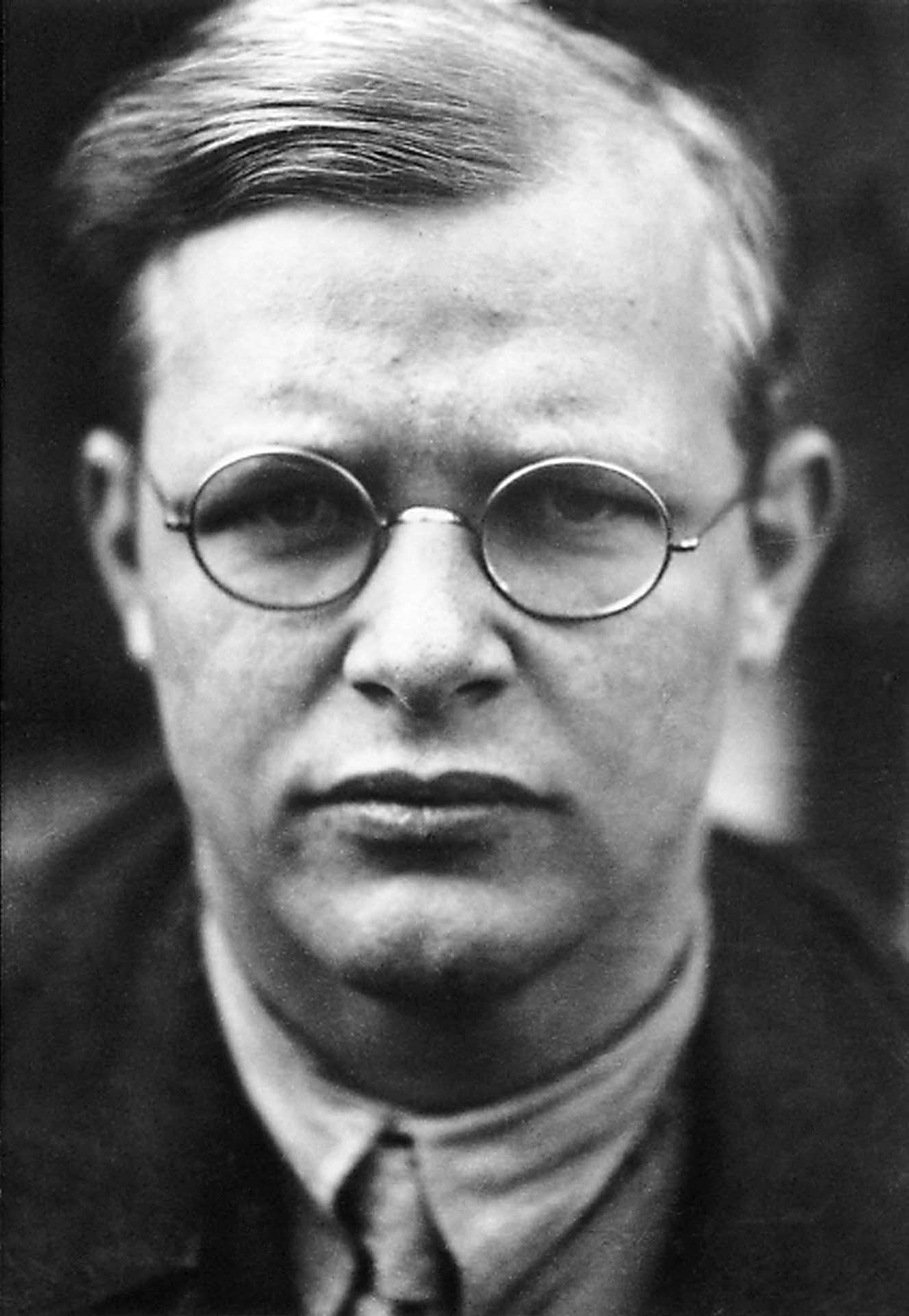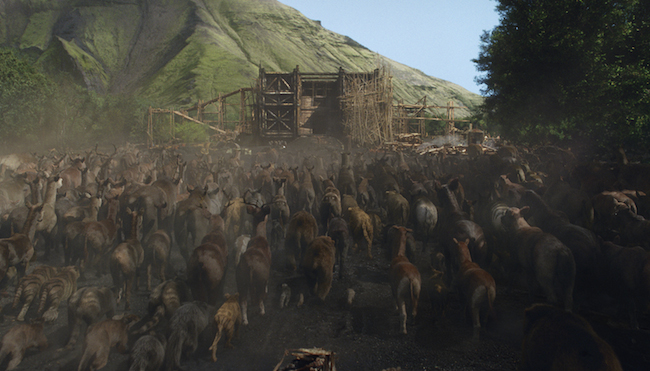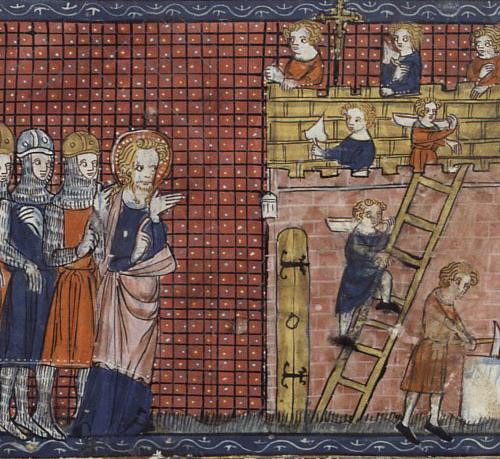Even though I only work one (half) day a week, it's still good for me to get away on vacation from time to time. My family was blessed to do a fair among of traveling this summer, including a European Grand Tour. In the last few months we've been through several European countries and a few different states, but wherever we went, we made sure to do one thing, no matter what. The one thing we did is easy for you to do, too, dear reader, and the best part is, you have my money-back guarantee? that this one thing will change your life.... We went to church.I know it sounds crazy, but it's really true: we actually went to church?while we were on vacation!This summer we visited:
We went to church.I know it sounds crazy, but it's really true: we actually went to church?while we were on vacation!This summer we visited:
- a charismatic non-denominational church in Oxford, England;
- an African Methodist church in Munich, Germany;
- a Roman Catholic mass--in Flemish!--in the beautiful Church of Our Lady in Bruges, Belgium (I was lost during the sermon but was able to follow the communion liturgy pretty well);
- an American Baptist church on Cape Cod, MA;
- and a small Methodist church in my wife's small Virginia hometown.
The experiences I had while worshipping in other churches are among my favorite memories from what was a great summer.
Moses Creates a New Holiday
In my church, we are in the midst of a 90 scripture reading campaign called Eat This Book. We're currently reading through the book of Exodus, and today read the passage in which Passover is instituted as an annual ritual of remembrance for the Israelites. (I'm supposedly blogging each day about that day's assigned chapter, but today's post is a combined post of Exodus 12 and 13.)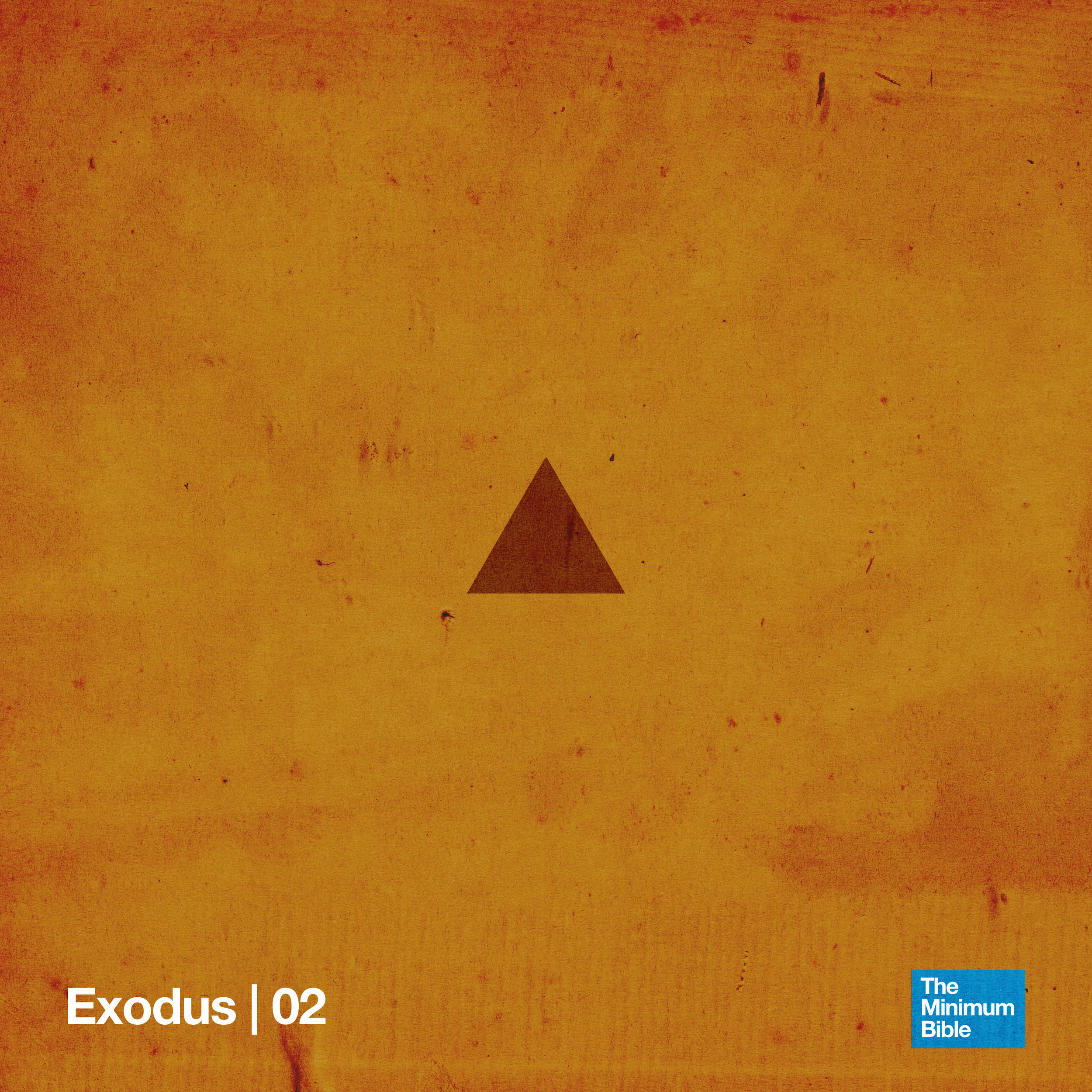 One idea struck me in the instructions Moses gives the people regarding the Passover: the Passover is to help the Israelites?remember.
One idea struck me in the instructions Moses gives the people regarding the Passover: the Passover is to help the Israelites?remember.
24You shall observe this rite as a perpetual ordinance for you and your children.25When you come to the land that the?Lord?will give you, as he has promised, you shall keep this observance.26And when your children ask you, What do you mean by this observance???27you shall say, It is the passover sacrifice to the?Lord, for he passed over the houses of the Israelites in Egypt, when he struck down the Egyptians but spared our houses.?? And the people bowed down and worshipped.... (Exodus 12:24-17)8You shall tell your child on that day, It is because of what the?Lord?did for me when I came out of Egypt.?9It shall serve for you as a sign on your hand and as a reminder on your forehead, so that the teaching of the?Lord?may be on your lips; for with a strong hand the?Lord?brought you out of Egypt.... (Exodus 13:8-9)14When in the future your child asks you, What does this mean?? you shall answer, By strength of hand the?Lord?brought us out of Egypt, from the house of slavery.15When Pharaoh stubbornly refused to let us go, theLord?killed all the firstborn in the land of Egypt, from human firstborn to the firstborn of animals. Therefore I sacrifice to the?Lord?every male that first opens the womb, but every firstborn of my sons I redeem.?16It shall serve as a sign on your hand and as an emblem?on your forehead that by strength of hand the?Lord?brought us out of Egypt." (Exodus 13:14-16)
The Passover is to be observed yearly, so that every generation will learn and remember that the children of Israel were slaves in Egypt, but the Lord brought them out with a mighty hand and an outstretched arm. They are to remember who they are and whose they are.
Some Things Don't Change
If you know anything about the Old Testament, you'll know that the Israelites are in constant danger of forgetting their unique heritage and instead returning to the slavery of false gods.I'm not an ancient Israelite, but I am just as prone to forgetting my identity as they were, perhaps more so. Our culture is a culture obsessed with getting and spending, and it's a culture that is doing everything possible to make me believe that I am nothing but a consumer. Worship, then, becomes a way of remembering that we are more than just consumers. I appreciate how Walter Brueggemann puts it:
The biblical community of faith is a community of memory, working at its precious identity in a culture devoted to amnesia. The market forces that encourage a consumer consciousness are largely controlled by ideology that wants to abandon the past and forsake the future in order to live in the absolute "now." Those who neither remember nor hope are profoundly vulnerable to consumerism, busy filling the void left be eradication of that extra dimension of historical awareness that belongs to healthy humanness. Thus when the community says, "This do in remembrance," it is not engaged in a mere history lesson or a simple act of piety. It is, rather, engaged in an act of resistance against an ideology that will destroy any Passover-driven humanness."
Weekly worship is a necessary reminder that you and are I not merely consumers. More than that, weekly worship reminds us, that contrary to how things often seem, God is in control and fear is always a lie. Those are messages I need to hear at least once a week.So, you need to be in church every week. Otherwise, how will you remember the truth?
Three Things I Remember Every Time I Go to Church
The following lessons are available to me every week in my home church, but for some reason they were made more clear to me as my family visited other churches this summer, thousands of miles away.When I go to church:
- I remember that it's not about me. Most of my life I think mostly about me. (May God heal me from self-obsession.) But on Sunday morning, in church, I'm reminded otherwise as I sing, pray, and think about the Lord. I'm not at the center of reality. It's good to remember that.
- I remember that I'm not the only one. When I worship with other Christians with whom I have nothing in common except faith in the Lord, I am always encouraged: there are people all over the world, in all kinds of languages, who are walking this journey with me.
- I remember that Christ is risen from the grave. It's been a summer of evil headlines, and it's easy to lose hope and become world-weary. But on Sundays I'm reminded that the same Lord who heard the cry of the Israelites and brought them out of slavery in Egypt is the same Lord who was crucified and raised from the dead and the same Lord who promises that he has overcome the world and that ultimately we have nothing to fear.
So, that's what I did on vacation this summer: I went to church. (At least on Sundays, not the other days of the week. I mean, I'm not?religious about it.)You should try it. It will change your life. I guarantee it?.
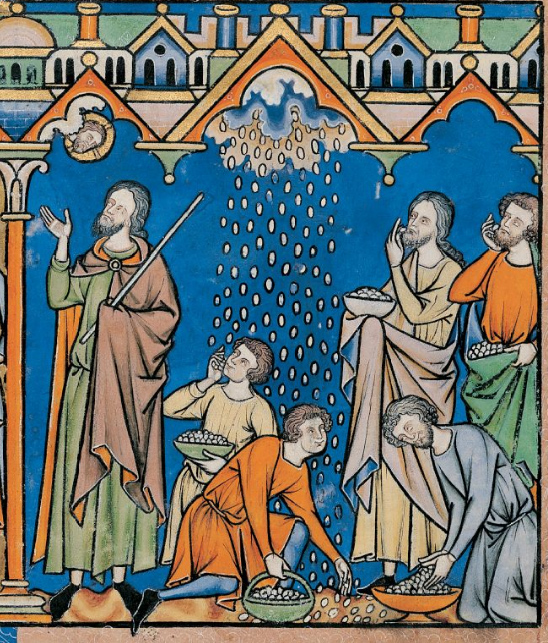 After coming out of slavery in Egypt, the Israelites faced forty years of wandering in the desert. But, the Lord provided. Each day (excluding the seventh day, the Sabbath), the Lord made provision for "thin flakes like frost?on the ground...It was white like coriander seed and tasted like wafers made with honey" (16:14,31). The Israelites called this strange food?manna.God provided manna every day, but if the people gathered more than they needed for the day, it rotted. The Israelites learned, therefore, to trust God for each day's provision.When Jesus taught his disciples to pray "Give us this day our daily bread," he was reminding them of the manna God provided in the wilderness.When we pray the Lord's Prayer, we pray for God to give us what we need to make it through the day: nothing more, nothing less.
After coming out of slavery in Egypt, the Israelites faced forty years of wandering in the desert. But, the Lord provided. Each day (excluding the seventh day, the Sabbath), the Lord made provision for "thin flakes like frost?on the ground...It was white like coriander seed and tasted like wafers made with honey" (16:14,31). The Israelites called this strange food?manna.God provided manna every day, but if the people gathered more than they needed for the day, it rotted. The Israelites learned, therefore, to trust God for each day's provision.When Jesus taught his disciples to pray "Give us this day our daily bread," he was reminding them of the manna God provided in the wilderness.When we pray the Lord's Prayer, we pray for God to give us what we need to make it through the day: nothing more, nothing less.